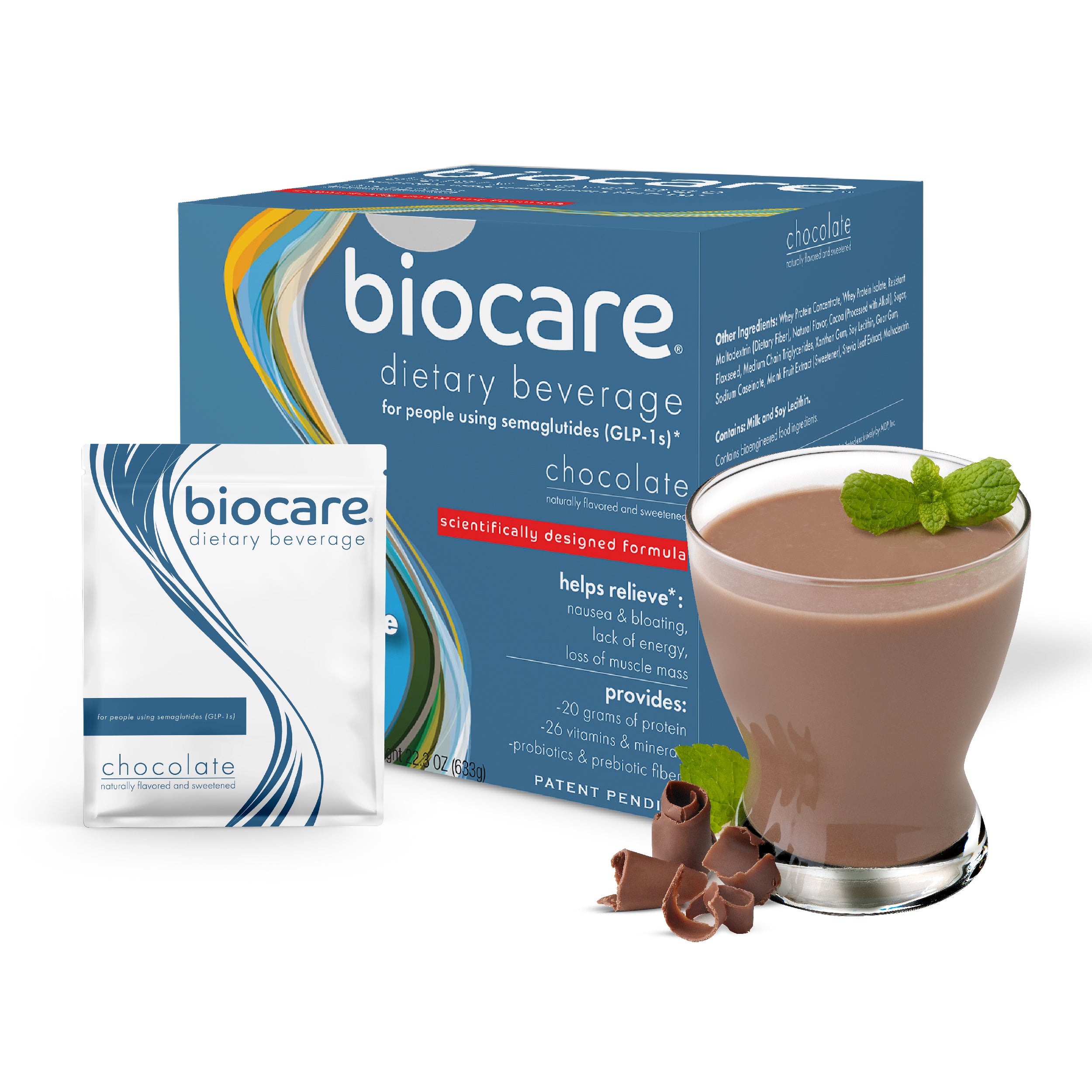
It’s been reported that 53% of GLP-1 users experience nausea+. What causes it and how can you manage it?
Nausea is one of the most reported side effects from GLP-1 medications. GLP-1 receptor agonists are a synthetic form of your body’s naturally occurring GLP-1 hormone, which is implicated in insulin release after eating. As your blood sugar rises after a meal, GLP-1 medications stimulate the production of more insulin, which helps to lower blood sugar. GLP-1 medications also suppress your appetite and promote a feeling of satiety (fullness) more quickly and for longer periods of time via delayed stomach emptying (gastroparesis). The nausea associated with GLP-1 medications typically resolves in a few weeks, though understanding its causes and its management in the interim may be helpful.
Why Does Semaglutide Cause Nausea?
While the precise reason for GLP-1 nausea is not yet clear, it is likely due to the delayed stomach emptying (gastroparesis) or eating too much of the “wrong” kinds of foods. Nausea is believed to be associated with:
What Foods Should You Avoid When Taking GLP-1 Medications?
It is important to follow a nutritionally balanced eating program while taking GLP-1 medications. While there are no foods that are technically off limits (unless there is a food allergy) setting yourself up for a positive experience and long-term success could be achieved through dietary changes. With that said, some foods to avoid or severely limit include:
What to Eat When Taking GLP-1 Medications
Examples of foods that should be the foundation of your eating plan while taking GLP-1 medications include:
Lean Protein: White meat poultry, lean beef, lean pork, tofu, tempeh, and seafood like salmon, tuna, and mackerel.
Vegetables: Dark, leafy vegetables like spinach or kale, red and orange vegetables like carrots or red bell peppers, legumes, peas, or lentils.
Fruit: Apples, pears, bananas, berries, oranges, melon, nectarines, peaches, plums, or pineapple.
Whole Grains: Quinoa, barley, oats, brown rice, black rice, or cracked wheat (bulgur).
Developing a nutritionally balanced diet will help you meet daily recommended allowances for protein, fiber, vitamins, and minerals. A nutritionally balanced diet will also help you build healthy eating habits that can be sustainable long-term.
How can Biocare Help?
Sometimes life can get busy, and we are pulled in multiple directions simultaneously. When life gets busy, it can be difficult to maintain a healthy eating plan, no matter how much we want to. When this happens, you can turn to scientifically formulated dietary beverages to help meet your nutritional goals while taking GLP-1 medications. The first product of its kind for GLP-1 patients on the market is Biocare®.
Is Biocare the Best Anti-Nausea Option?
Biocare is designed specifically for people using GLP-1 weight loss medications to help minimize side effects like nausea and shore up nutritional deficits that may arise from the appetite suppressing effects of the medication*. Biocare is gluten free and provides 20 grams of protein, 26 vitamins & minerals, and six grams prebiotic fiber per serving. In addition to its nutritional value, Biocare contains digestive enzymes and anti-nausea compounds to help promote healthy digestion and alleviate GI side effects like nausea.*
GLP-1 medications offer benefits to patients with obesity and/or type 2 diabetes. Although these medications do have side effects, the side effects can be managed with dietary lifestyle changes that include low fat, high fiber foods, and a scientifically formulated dietary beverage like Biocare*. Prior to starting any weight loss program, whether it includes anti-obesity medication or not, be sure to consult with your healthcare provider to make sure your desired weight loss strategy is right for you.
About the Author: Dr. Dawn M. Sweet has over 20 years of experience in the field of communication. Dr. Sweet has given several invited talks to and workshops for academic and private sector audiences on the role of nonverbal and verbal communication in achieving positive outcomes and mitigating bias. Her research has been published in several top ranked peer-review journals, and it has been featured on NPR’s River to River / All Things Considered, Buzzfeed, and Science Daily. Her research has also been used to inform expert testimony.
* Wegovy® and Ozempic® are registered trademarks of Novo Nordisk A/S. Novo Nordisk is a registered trademark of Novo Nordisk A/S.




